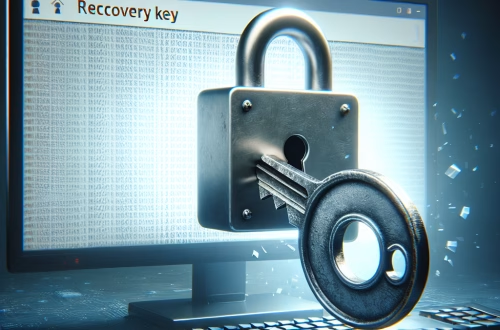Fixing Slow BitLocker Encryption: Causes and Solutions
Summary
BitLocker encryption can sometimes take an excessively long time to complete due to hardware constraints, misconfigurations, or system bottlenecks. This article explains the technical reasons behind slow BitLocker encryption and provides fixes for common issues. Readers will learn about performance optimization, troubleshooting errors, and best practices for efficient encryption.
Introduction
BitLocker Drive Encryption is a critical security feature in Windows that protects data from unauthorized access. However, users often encounter slow encryption speeds during initial setup or when encrypting large drives. This delay can stem from hardware limitations, improper settings, or background system processes. Addressing these issues ensures a smooth encryption process while maintaining security.
What Is BitLocker Encryption Takes Too Long Fix?
BitLocker’s encryption process relies heavily on system resources, including CPU, disk speed, and the Trusted Platform Module (TPM). Slow encryption typically occurs when:
- The system lacks hardware acceleration (AES-NI support).
- The drive is large and heavily fragmented.
- Background processes interfere with encryption.
Fixing slow BitLocker encryption involves troubleshooting these factors through hardware checks, system optimizations, and policy adjustments.
How It Works
BitLocker uses the XTS-AES encryption algorithm for full-disk encryption and depends on:
- TPM (Trusted Platform Module) – Validates boot integrity and stores encryption keys.
- UEFI Secure Boot – Ensures only trusted firmware loads before decryption.
- Group Policies – Configures encryption method, hardware requirements, and performance options.
Slow encryption may occur if:
- The CPU lacks AES-NI instructions for hardware acceleration.
- Disk writes are throttled due to high fragmentation or insufficient free space.
- The encryption policy enforces a slower cipher or FIPS compliance.
Common Issues and Fixes
Issue 1: Slow Encryption Due to CPU or Disk Bottlenecks
Cause: Older CPUs without AES-NI support or slow HDDs increase encryption time.
Fix:
- Verify AES-NI support with
cpu-zor PowerShell (Get-CimInstance Win32_Processor). - Upgrade to an SSD if using an HDD.
- Close resource-heavy applications during encryption.
Issue 2: Fragmented or Nearly Full Drive
Cause: High fragmentation or low disk space slows write operations.
Fix:
- Defragment the drive before encryption (for HDDs only; SSDs don’t need defragmentation).
- Free up at least 15% disk space to avoid performance degradation.
Issue 3: Group Policy or Software Conflicts
Cause: FIPS mode or outdated encryption policies enforce slower encryption methods.
Fix:
- Check Group Policy (
gpedit.msc) and ensure “Choose drive encryption method” is set to XTS-AES 256-bit. - Disable conflicting disk utilities or antivirus scans during encryption.
Best Practices
- Enable hardware encryption via BitLocker hardware encryption mode if supported by the SSD.
- Monitor disk health with
chkdskand optimize before encryption. - Test recovery keys to ensure accessibility before encrypting critical drives.
- Use PowerShell (
Manage-BDE) for automation and faster scripted deployments.
Conclusion
Slow BitLocker encryption is often caused by hardware limitations, policy misconfigurations, or disk fragmentation. By verifying system capabilities, optimizing storage, and enforcing the correct encryption settings, users can significantly reduce encryption time while maintaining security.
People Also Ask About:
1. Does BitLocker slow down an SSD?
BitLocker has minimal performance impact on SSDs with hardware-based encryption support. If slowdowns occur, check AES-NI support in the CPU and SSD firmware.
2. Can I pause BitLocker encryption and resume later?
Yes, use Manage-BDE -Pause in PowerShell to temporarily halt encryption. Resume with Manage-BDE -Resume.
3. How long should BitLocker take to encrypt a 1TB drive?
On a modern SSD with AES-NI, encryption takes 2-5 hours. With HDDs or older systems, it may exceed 10+ hours.
4. Why does BitLocker hang at “Encrypting Used Disk Space Only”?
This occurs when background processes interfere. Use resmon to check disk activity and suspend unnecessary tasks.
Other Resources
- Microsoft’s BitLocker Documentation – Official guide on deployment and troubleshooting.
- Manage-BDE PowerShell Reference – Automation commands for BitLocker.
Suggested Protections
- Enable TPM & Secure Boot before encrypting.
- Use XTS-AES 256-bit encryption for optimal performance and security.
- Monitor disk health before encryption.
- Schedule encryption during low-usage periods to avoid slowdowns.
Expert Opinion
Slow BitLocker encryption is usually hardware-dependent, but misconfigurations can exacerbate delays. Always verify system requirements before deployment. Organizations should standardize encryption settings via Group Policy to prevent inconsistency in security performance.
Related Key Terms
- Fix slow BitLocker encryption Windows 10
- BitLocker encryption stuck at X percent
- Best BitLocker settings for fast encryption
- AES-NI not working with BitLocker
- BitLocker slow on external hard drive
#Fix #BitLocker #Encryption #Long #Quick #Easy #Solutions
Featured image generated by Dall-E 3





